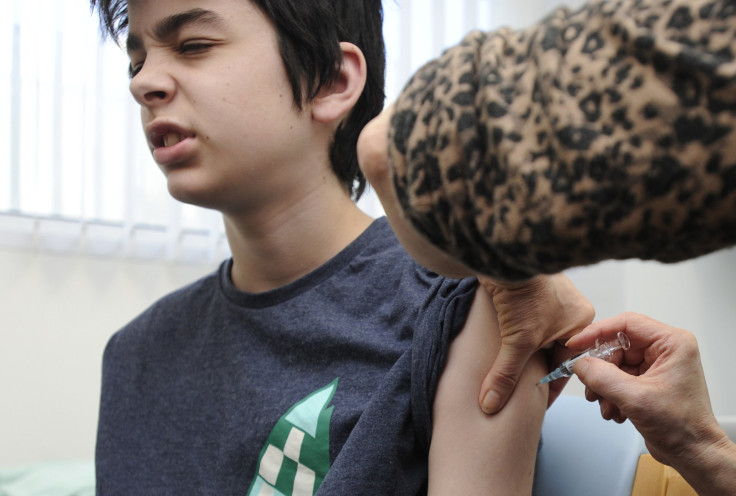Measles Vaccine Poll In US Says 83% Think It's Safe For Healthy Children

A new national survey says that 83 percent of the American public believe that vaccines for diseases such as measles, mumps and rubella (MMR) are safe for healthy children, while 9 percent believe them to be unsafe. A further 7 percent said they did not know.
The Pew Research Center surveyed 1,003 adults between Feb. 5 and Feb. 8, noting that a majority of people across every demographic and partisan group believed the vaccines to be safe. However, the report noted that less educated people and young adults were more likely to say that the vaccines are not safe.
The survey comes as a national outbreak of measles spread to three more states and Washington, D.C. Monday, affecting 121 people in total, according to an update posted by the Centers for Disease Control and Prevention. At the current rate, 2015 is on course to eclipse the 644 cases reported in 2014, the highest figure since measles was declared eliminated in 2000.
The latest survey found that about 92 percent of college graduates thought the vaccines were safe, a view shared by 85 percent of people with some college experience and 77 percent of those with a high-school degree or less. There was little difference between political groups, with 89 percent of Republicans and 87 percent of Democrats agreeing that the vaccines are safe for healthy children.
The survey also discovered that three-quarters or more respondents across all age groups believe the vaccines to be safe. Ninety percent of adults over the age of 50 and 81 percent of adults aged 30-49 believe it to be safe, compared with 77 percent of those aged 18-29 who think the vaccines are safe.
A similar study from January that compared the opinions of the public and scientists on issues related to science and society found that 68 percent of U.S. adults believed children should be vaccinated, while 30 percent said parents should be able to decide. It concluded that young adults were more likely to favor parental choice but there were no major findings about educational levels influencing opinions on vaccines.
© Copyright IBTimes 2024. All rights reserved.












